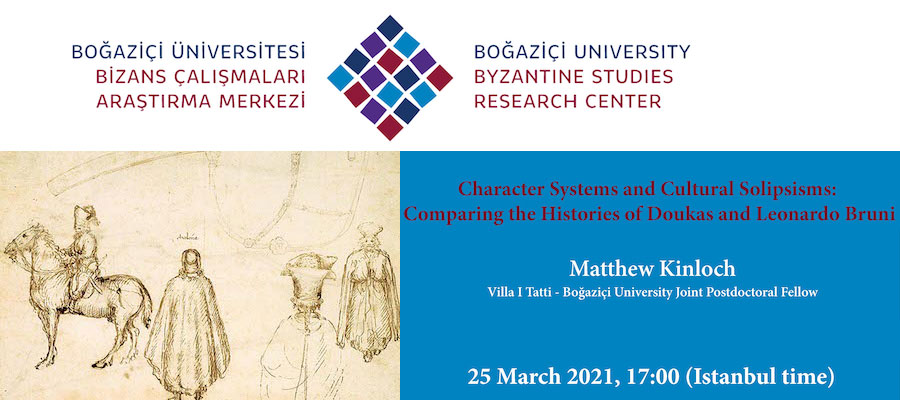Character Systems and Cultural Solipsisms: Comparing the Histories of Doukas and Leonardo Bruni, lecture by Matthew Kinloch (Boğaziçi University / Villa I Tatti), Boğaziçi University via Zoom, March 25, 2021, 5:00 pm (Istanbul Time Zone)
One of the defining features of the Byzantine historiographical tradition is the dominant role played by emperors. Not only do emperors take up a disproportionate amount of narrative space, they also provide the foundational organizing principal and structure for the stories being told. It has become an accepted fact that Byzantine historiographical narratives are disproportionately about emperors, just as it is accepted that they are mostly about war, politics, and diplomacy or that they generally produce worlds centered on and aligned with the interests of the imperial court, its metropolitan center, Constantinople, and its (principally male) literate elite.
This paper aims to render the contingency of this naturalized narrative structure visible. It contends that transhistorical comparison between historiographical traditions offers a means of unveiling, what Chris Wickham has termed, the “cultural solipsism” of traditional modes of analyzing Byzantine historiography. It does so by comparing the character systems of the fifteenth-century histories of Doukas and Leonardo Bruni and the manner in which rulers and urban populations interact to construct action in each narrative. While both narratives are statist, the stories of the Florentine, Pisan, Byzantine, and Ottoman states that emerge from these narratives are constructed in such contrasting ways that they allow us to reflect critically on the foundational narrative structures of the Byzantine historical tradition.
Matthew Kinloch is currently a Joint Fellow of the Byzantine Studies Research Center of Boğaziçi University and Villa I Tatti, The Harvard University Center for Italian Renaissance Studies in Florence.
Advance registration required.
